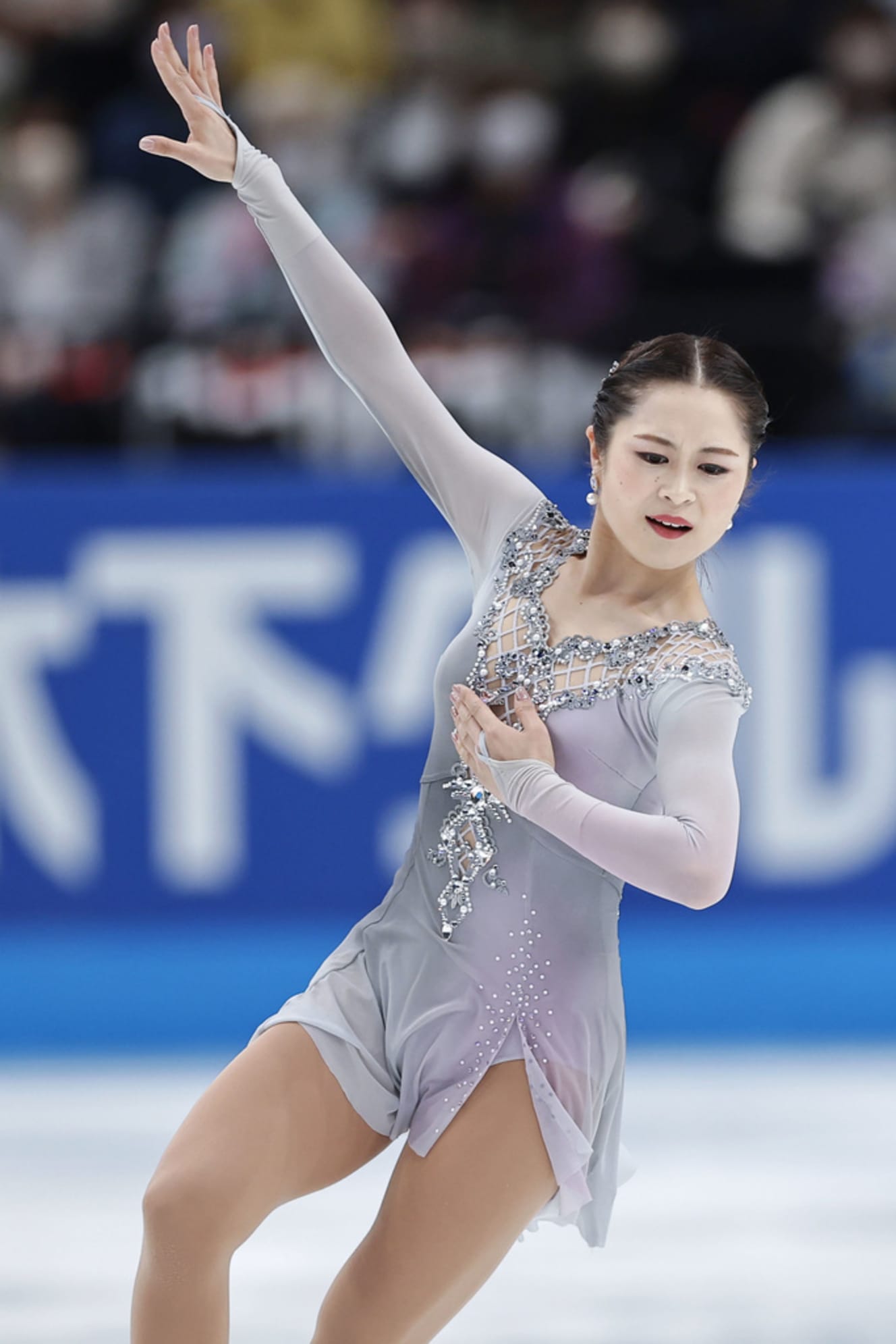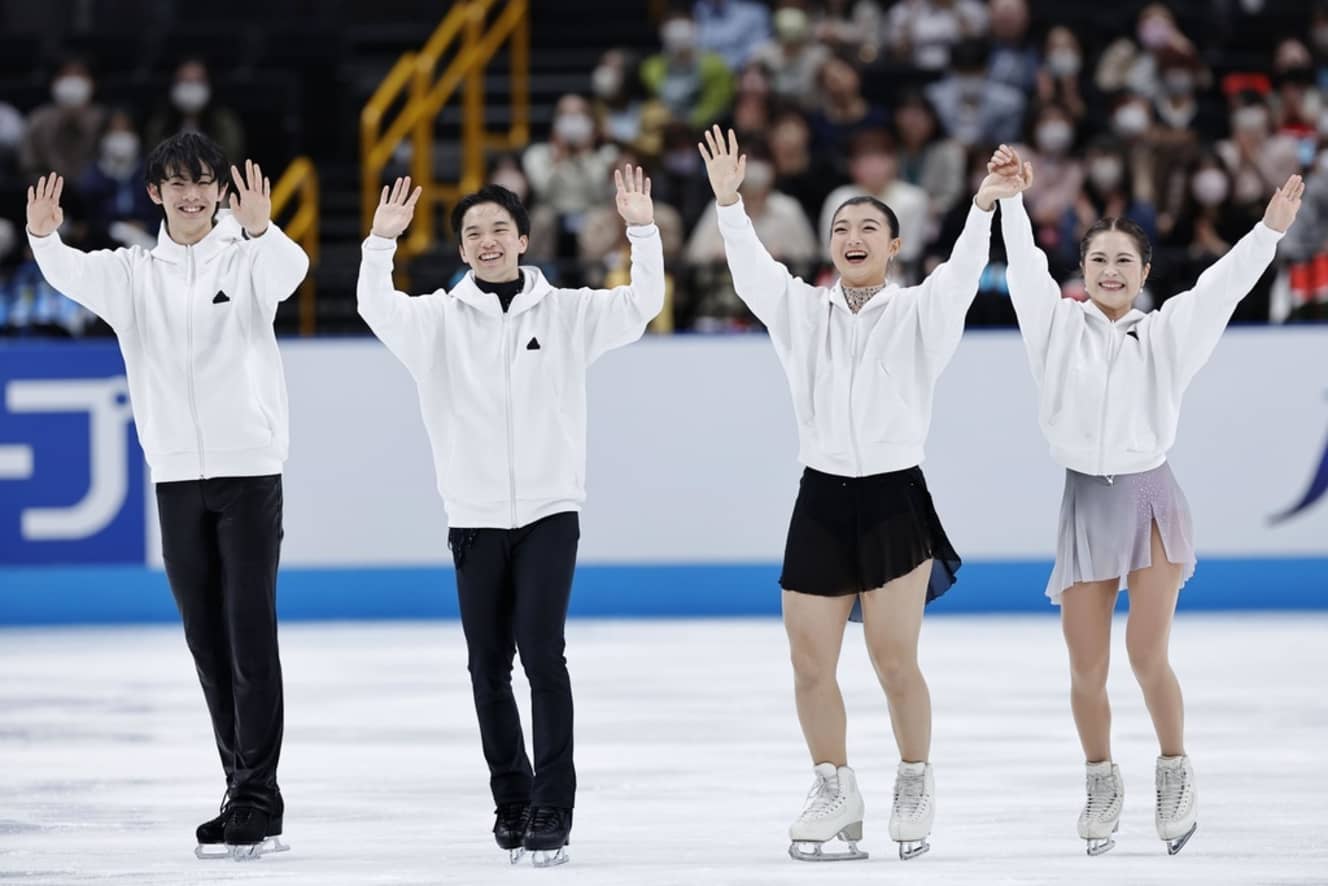World Queen Kaori Sakamoto stopped blinking… Tomoko Miyahara’s “miraculous one-day return to active duty” was amazing.
Her skating, which draws the viewers into the “world of the story,” has become even more amazing.
Tomoko Miyahara (25), who placed fourth in the women’s figure skating competition at the 2018 PyeongChang Winter Olympics, made a one-day return to competition at the Japan Open, a team competition among Japan, Europe, and North America, held at Saitama Super Arena on October 7.

Since her retirement last March, Miyahara has been active as a professional skater, becoming the first Japanese to participate in the international tour of “STARS ON ICE,” an ice show featuring only top skaters.
The “Japan Open,” in which she competed this time, is a mixed pro-am competition in which each team consists of two male and two female skaters competing only in the free skate. Since she decided to compete, Miyahara has been working on her jumps at a rapid pace, trying to get back to competition level. It has already been more than a year and a half since she retired from the front line.
She said, “The amount of practice has decreased since I quit the active duty. The type of programs (for shows) has changed, so getting in shape has been the hardest part,” said Miyahara.
Miyahara spoke of the hardships she faced.
As she said before the competition, “I hope I can make a difference in the way I present myself as a professional,” Miyahara danced “Romeo and Juliet,” with its theme of “love, passion, and destiny,” with rich emotion and splendor.
Her uncompromising attitude from her days as an active dancer remained unchanged. After being escorted to the center of the rink by her coach Stéphane Rambière (38), the former world champion and choreographer of this performance, Miyahara landed a series of triple jumps from a triple Lutz at the beginning of her performance with aplomb. Her precise edge work and her skating, as crisp and powerful as the solemn music, were indeed outstanding. As she had intended, she grabbed the hearts of 4,000 spectators with her choreo sequence at the end, and finally, she lay down on the ice to express Juliet’s suicide. It was an intense four minutes.
I went into the competition thinking that I would only do what I could do, piece by piece. I think I accomplished that.
Miyahara said after the competition. She had some under-rotations on some jumps, but no falls, and she put together an excellent piece of work, scoring 123.22 points, which is a great achievement for the competition. It was a great performance in the competition as well. This was proven by her friends who were watching her closely.

Koshiro Shimada (22, Kinoshita Group), who placed second in the men’s competition at the All-Japan Championships last December, said
I could not stop crying because of the beauty of the body movements and the emotions that came from within.
I couldn’t stop crying. Miyahara, with a bashful smile on her face, said
I think I was able to detoxify my body by shedding tears. I was able to feel the grandeur of the song and skate into the song. I am happy that the audience could feel it.
I’m glad that people could feel that,” she said, her eyes narrowing.
Breathing life into the story. Miyahara’s unforgettable short program (SP) “SAYURI” was chosen for the 2017-2018 PyeongChang Olympics season, after she suffered a fatigue fracture in her left hip midway through the 2016-2017 season, forcing her to take a long layoff during the crucial preseason for the Olympics, The film “SAYURI” was a performance of the game, in which he compared himself with a geisha who had led a tumultuous life.
I wanted to express the strength of the main character, who carries herself through.
After deciding to skate this piece, she started reading the original English book, developed an image of the work, and incorporated it into each of her skates. At the Grand Prix (GP) series NHK Cup in early November 2017, where she returned to actual competition after an 11-month absence, her score was sluggish due to a mistake in a jump, but two weeks later at Skate America, she improved more than five points to reach the 70-point plateau. The scene I was reading about at the time was the scene where the main character’s path to become a geisha, which she has been thinking about single-mindedly, has opened up. The scene coincided perfectly with his own circumstances as he steadily climbed the stairs to the Olympics.
Then came the All-Japan Championships in December, which also served as the final Olympic selection round. Despite the fatigue in her legs from the consecutive races, she started the day in 2nd place, 0.36 points behind the leader, and turned the tables in the free skate to win her 4th consecutive title. He won the Olympic ticket by his own hands.
She said, “I’ve been winning (the All-Japan Championships) for a long time, and I felt strongly that I couldn’t miss out on winning here. I came here to make a comeback.
Miyahara’s unusually strong tone of voice after her performance was impressive.
As a professional skater, it is of course a wonderful moment to see the work you have spent so much time on the ice show stage. However, it is even more wonderful to watch her performance, in which she overlaps the human drama of the moment on the stage of a serious competition. The world queen, Kaori Sakamoto (Sysmex), summed it up beautifully when she said, “I was so impressed with her performance that I forgot to blink.
She said, “I watch so much that I forget to blink. It’s so amazing that my vocabulary goes somewhere else. It’s such a waste of a day’s work. I wanted to see more of it, so much so that I wished he would do more.
I hope to see Miyahara’s mature skating on this stage again next year.
Interview and text by: Daichi Hadano Photo: Kyodo News